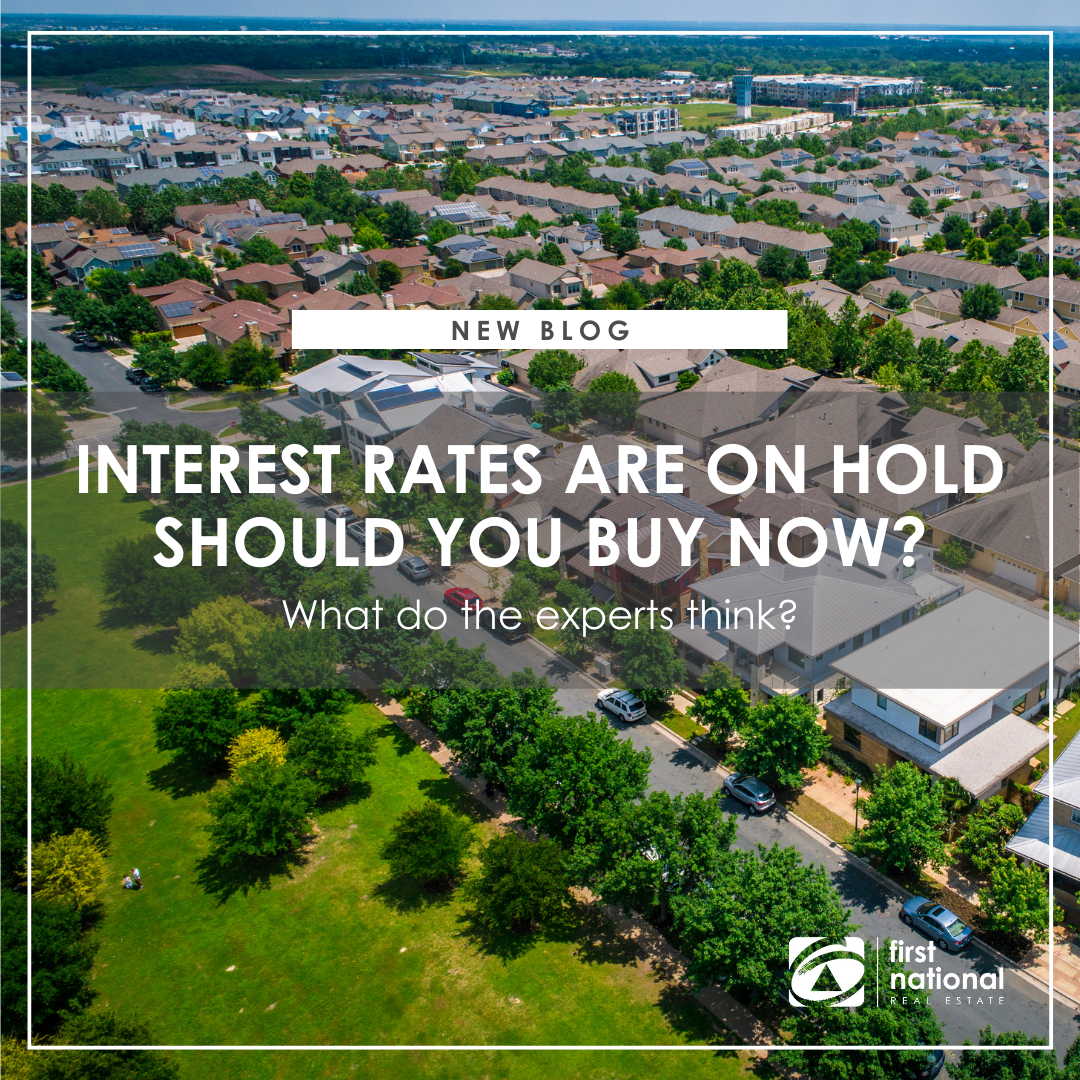
The Reserve Bank of Australia sent an important signal when it kept rates on hold at its April meeting. It’s the signal most home hunters have been looking for, delivering hope that the climate of rising interest rates, if not over, may soon be coming to an end.
The RBA decision delivers greater confidence that if you buy a home today, you’ll be able to continue to manage the mortgage repayments tomorrow. However, while the RBA kept rates on hold for April, other factors that drive or at least underpin house prices are far from ‘on hold’, other than the supply of homes for sale it seems.
Rates on hold but migration booming
Overseas migration is surging as students and expats return to Australia. Based on the current trajectory, more than 300,000 people will arrive in the country this year; that’s 25% more than originally anticipated. We may see a more than usual proportion of these people choosing to buy, rather than try and find a place to rent.
Our population is rising, as are company profits and small business profits. That’s another possible reason why housing values actually rose in Sydney, Melbourne and Perth in February, then again in Sydney, Melbourne, Brisbane and Perth in March. That’s according to CoreLogic.
The number of homes for sale has been below average since September last year. At the end of March, homes for sale in our capital cities were almost 20% below the previous five-year average. It’s fair to say that buyer activity has fallen, but not as much as the number of homes for sale have fallen, so we still have demand outstripping supply.
Another contributing factor is that builders just can’t build enough homes to keep up with demand, and some are failing under decade-high construction costs, labour and materials shortages, and the costs of delays caused by bad weather.
The National Housing Finance and Investment Corporation has just released its ‘State of the Nation Housing Report for 2022-23’. Within it warns of worse to come as the level of new supply in cities falters. The NHFIC says that between 2023 and 2027, there will be a shortfall of 100,300 dwellings in Australia.
What do property market commentators think about the outlook?
SQM Research managing director, Louis Christopher, says the pause in interest rate rises would indicate to buyers and sellers that the worst could be over for the housing market. He believes we’re seeing the end of the interest rate tightening cycle and that we’ll see buyers and investors returning to the market soon, and renters trying to escape the tight rental market. He also thinks the impact of interest rate rises on the housing market has likely been overestimated by many forecasters.
CoreLogic research director, Tim Lawless, reminds us that the RBA has hinted at further rate rises, but acknowledges sentiment will be boosted by its decision to hold. This, he says, should see more buyers and sellers returning to the market.
HSBC’s chief economist, Paul Bloxham, is more bearish, predicting further falls in house prices this year. His reasoning is that rate rises haven’t yet flowed through to all variable rate mortgage holders, and he cites the large number of fixed rate mortgages that will reset in the coming months.
The National Australia Bank considers that the recent fall in bond markets yields may also contribute to downward pressure on interest rates. That’s the reason it is now talking of US rate cuts before the end of the calendar year.
RBA Governor, Phillip Lowe, says the jump in immigration will only be matched with a ‘modest’ housing supply in the coming years.
Robert Gottliebsen considers our economy will slow in the coming months, but feels that the downturn will be different from those we have experienced in recent decades. He says normally Australians fear losing their job during a downturn, but in 2023 we have near full employment. The problem is that real wages have fallen between 4% over the past year and 7% from their peak, which means people with large mortgages are cutting expenditure.
To buy or not to buy
The majority of cash rate hikes are now likely behind us. So, it would appear, are falling house prices.
We’ve a shortage of homes for sale as well as those being built, and even fewer available for rent. Against this backdrop, we are experiencing surging migration and a considerable cohort of older first home buyers – the over 40s - taking advantage of grants to escape renting and buy a home.
All that is required now is for confidence to be normalise before we see a substantial increase in demand across all price ranges.
The best advice, as always, is to speak to a financial advisor to get a strong understanding of your borrowing capacity as well as your ability to weather any remaining increases to the cash rate. Then, talk to us for advice about what you can buy without breaking your budget.
